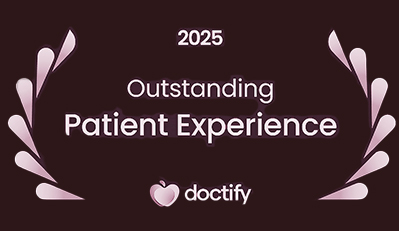
What are the early signs of cataracts?
Cataracts are one of the most common age-related eye conditions. They develop slowly, and for many people, the early signs are easy to miss. But recognising these signs early can help you take action before your vision starts to impact your daily life.
If you’ve noticed changes in how you see, especially if things feel slightly dull, blurry, or dim-you might be experiencing the early stages of cataract development.
In this blog, we’ll explore the most common early symptoms, what causes cataracts, and what steps you can take if you suspect you might have them.
What is a cataract?
A cataract is a clouding of the natural lens inside your eye. The lens is responsible for focusing light onto your retina so you can see clearly. As we age, the proteins in the lens can break down and clump together, forming cloudy patches. This process is gradual and painless—but it affects how light passes through your eye.
Eventually, this cloudiness interferes with your vision. But for many people, changes can begin long before they realise something’s wrong.
Early signs of cataracts
Here are the most common early signs to watch out for:
1. Blurry or cloudy vision
Your vision may start to look slightly hazy, like you’re looking through a smudged window. You might find yourself squinting more often or struggling to read in dim light.
2. Increased sensitivity to light
Bright lights—especially headlights at night—might feel uncomfortable. You may notice glare or a halo around lights.
3. Colours appear faded
Colours can lose their vibrancy. Whites may look yellowed or off, and reds or blues may not seem as bright.
4. Poor night vision
Driving at night may become more difficult. You might feel less confident behind the wheel, especially in low-light conditions.
5. Double vision in one eye
Some people experience “ghosting” or double vision, particularly in one eye.
6. Frequent changes in your glasses prescription
If your optician keeps updating your glasses but your vision still doesn’t feel right, cataracts may be the cause.
Who gets cataracts?
Cataracts are most common in people over 60, but they can start earlier. Risk factors include:
- Ageing
- Smoking
- Diabetes
- Prolonged UV exposure
- Family history of cataracts
- Long-term use of steroid medications.
Even if you’ve always had perfect vision, cataracts can still develop later in life.
How are cataracts diagnosed?
The best way to find out if you have cataracts is to book a comprehensive eye examination. At Mitry Vision, we use advanced diagnostic imaging and in-depth testing to check your lens clarity and overall eye health.
You don’t need a GP referral to see us. You can book directly for an expert consultation.
Can early cataracts be treated?
In the very early stages, stronger glasses or better lighting may help. But cataracts don’t go away on their own, and they usually continue to worsen over time.
Once cataracts start interfering with your ability to work, drive, or enjoy life, the most effective treatment is surgery.
What is cataract surgery?
Cataract surgery involves removing the cloudy natural lens and replacing it with a clear artificial lens, called an intraocular lens (IOL). It’s a quick, safe, and highly effective day procedure performed under local anaesthetic.
At Mitry Vision, we offer both standard and premium lens options—including lenses that can reduce or eliminate your need for glasses.
Final thoughts
Cataracts can sneak up on you, but the earlier you recognise the signs, the sooner you can take back control of your vision.
If you’ve noticed cloudy or blurry vision, glare from lights, or dull colours, don’t ignore it. A short consultation could give you the clarity you’ve been missing.
Think you might have cataracts? Take our free self-test to find out if you're suitable for private treatment.
Find out if you are suitable for vision correction
Not everyone is eligible for vision correction surgery.
Find out if you could benefit from this life changing surgery by taking the quick self-suitability quiz below:




